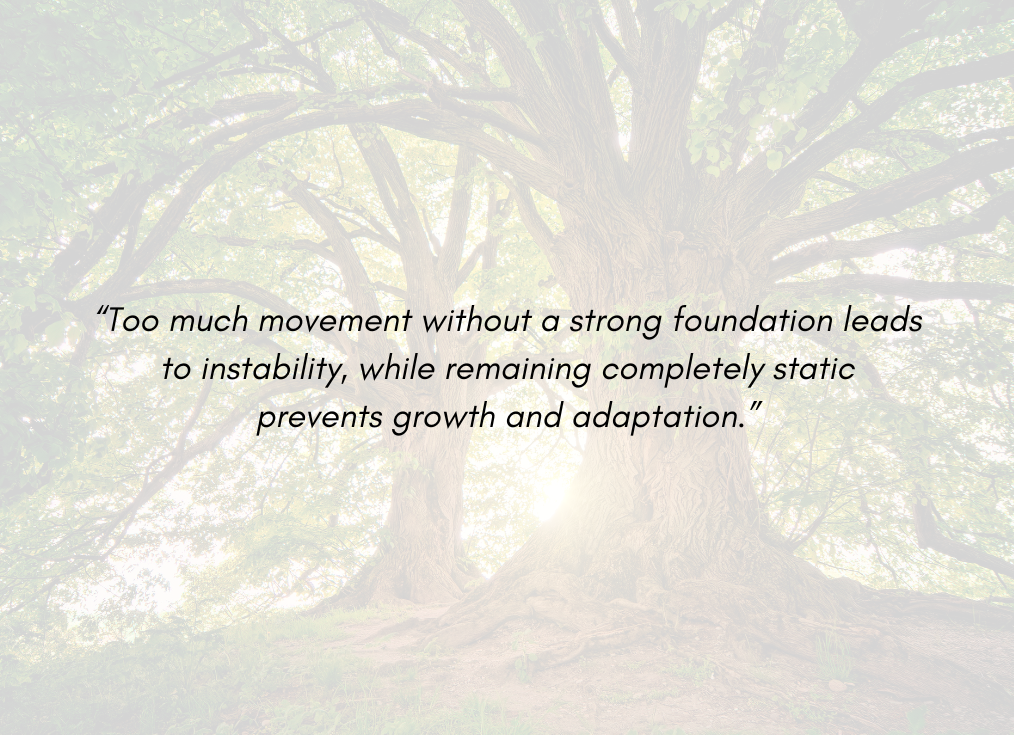Standing Firm While Moving Forward

This week’s double Torah portion, Nitzavim-Vayelech, offers a profound meditation on the dual nature of our spiritual journey as we approach the High Holy Days. The very names of these portions encapsulate this duality: Nitzavim, rooted in the Hebrew word meaning “to stand,” and Vayelech, derived from the word “to go.” This juxtaposition invites us to consider the importance of both steadfastness and progress in our lives.
Nitzavim opens with the powerful image of the entire Jewish people standing together before Gd, emphasizing the strength found in unity. From the leaders to the water drawers, all are present and accounted for, reminding us of the importance of communal solidarity. This portion reaffirms the covenant between Gd and the Jewish people, highlighting the accessibility of Torah and the power of choice in our spiritual lives.
Vayelech, in contrast, focuses on Moses’ final day on earth. Here, we see the great leader preparing for his departure, conveying his last teachings and appointing Joshua as his successor. This portion underscores the finite nature of individual human life, set against the backdrop of the eternal covenant and the enduring nature of the Jewish people.
…
The complementary messages of these portions offer a profound lesson: in life, we must both stand still and move forward. As Rabbi Abraham Isaac Kook once said, “The old shall be renewed, and the new shall be sanctified.” This wisdom encapsulates the delicate balance between tradition and progress, between standing firm in our values and advancing in our understanding and practice.
Consider the parable of the tree: A young sapling must send its roots deep into the ground, standing firm against the winds of change. Yet, to grow tall and strong, it must also reach upward, constantly extending its branches toward the sky. Too much movement without a strong foundation leads to instability, while remaining completely static prevents growth and adaptation.
As we approach the High Holy Days, this double portion calls us to reflect on our personal and collective journeys. Have we progressed over the past year, or has this been a time of patience and reflection? Both have their place and purpose. Sometimes, standing still allows us to observe, evaluate, and gather strength for the next step forward. Other times, we must push ourselves to grow, to stretch beyond our comfort zones, and to make meaningful changes in our lives and communities.
On a broader scale, we might ask: How have we fared as a community, as a nation, as a global society? Have we stood together in the face of challenges, or have we allowed divisions to weaken our collective strength? Have we moved forward in addressing pressing issues, or have we remained stagnant, caught in old patterns and conflicts?
With just one week left before we gather to celebrate Rosh Hashanah, it’s crucial to take stock of where we are versus where we want to be. The call to action is clear: use this time wisely. Reflect on the moments when you stood firm in your convictions and the times you took bold steps forward. Consider the areas in your life that may require more movement and those that might benefit from a moment of stillness and contemplation.
As we read in Deuteronomy 30:19, we are constantly called to “choose life.” This choice is not a one-time decision but a continual process of growth, reflection, and renewal. Whether we find ourselves in a period of standing firm or moving forward, let us approach the New Year with intention, unity, and a commitment to positive change.
May this coming year be one of meaningful progress, grounded in the wisdom of our traditions, as we stand together and move forward into a brighter future. Because we are…
Shabbat Shalom.

